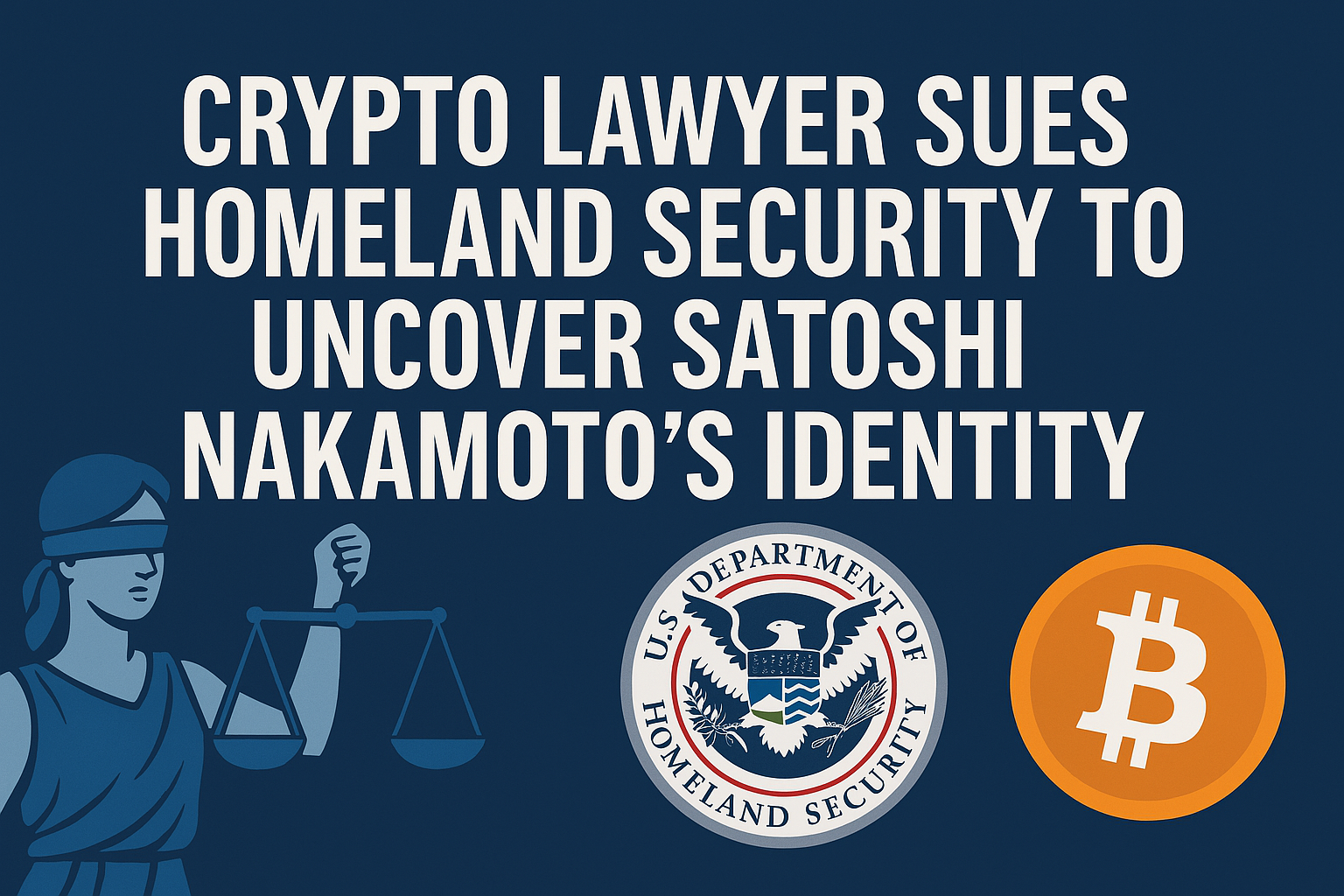
In a bold legal move, prominent crypto attorney James Murphy, better known as MetaLawMan on X, has filed a Freedom of Information Act (FOIA) lawsuit against the U.S. Department of Homeland Security (DHS). His goal? To determine whether the U.S. government secretly interviewed the elusive creator—or creators—of Bitcoin, Satoshi Nakamoto.
Murphy’s legal action stems from a statement made by DHS Special Agent Rana Saoud at the OffshoreAlert Conference in Miami back in April 2019. During her talk, Saoud claimed that DHS agents had flown to California to meet with four individuals believed to be behind the creation of Bitcoin. According to her, the agents questioned them about their motives and the broader purpose behind the cryptocurrency.
Murphy argues that if this meeting truly occurred, then there must be records—emails, meeting notes, or memos—documenting what was discussed. His FOIA lawsuit, filed on April 7, 2025, is aimed at uncovering those very documents. “IF the interview really happened as the DHS Agent claimed,” Murphy posted on X, “there should be documentation of the substance of that meeting.”
Assisted by former Assistant U.S. Attorney Brian Field, an expert in FOIA litigation, Murphy is determined to push the case forward, even if it leads to prolonged legal proceedings. While acknowledging that the DHS may have spoken to Bitcoin developers or even imposters, Murphy emphasizes the importance of transparency, especially if a high-ranking agent’s claims have merit.
In response to questions from Cointelegraph, Murphy stated that while the DHS agent could have been mistaken, the potential implications are too significant to ignore. He also dismissed concerns about revealing the identities of the alleged creators, pointing out that founders of major blockchain projects like Vitalik Buterin and Charles Hoskinson are publicly known figures. “Our government is required to be transparent and not keep secrets from the citizens,” Murphy explained, “absent a legitimate national security concern.”
He believes that resolving the mystery of Satoshi’s identity could actually boost Bitcoin adoption, especially among skeptics who are uneasy about the anonymity of its origins. Murphy also supports initiatives like former President Trump’s proposal for a Strategic Bitcoin Reserve, arguing that understanding the roots of Bitcoin could serve national interests.
The debate over revealing Satoshi’s identity remains divisive. Some worry that exposing Nakamoto could endanger the person—or persons—involved and disrupt Bitcoin’s decentralized philosophy. Others argue that transparency would reinforce trust in the system, particularly by disproving theories that Bitcoin was a government invention.
Despite countless efforts over the years to uncover who Satoshi is—ranging from wild theories to HBO documentaries—the truth remains elusive. Past candidates like Nick Szabo, Adam Back, and the late Hal Finney have all denied being the creator.
Whether Murphy’s lawsuit will finally shed light on one of the biggest mysteries in tech remains to be seen. But one thing is clear: the battle between privacy and transparency in the crypto world is far from over.

